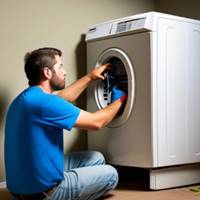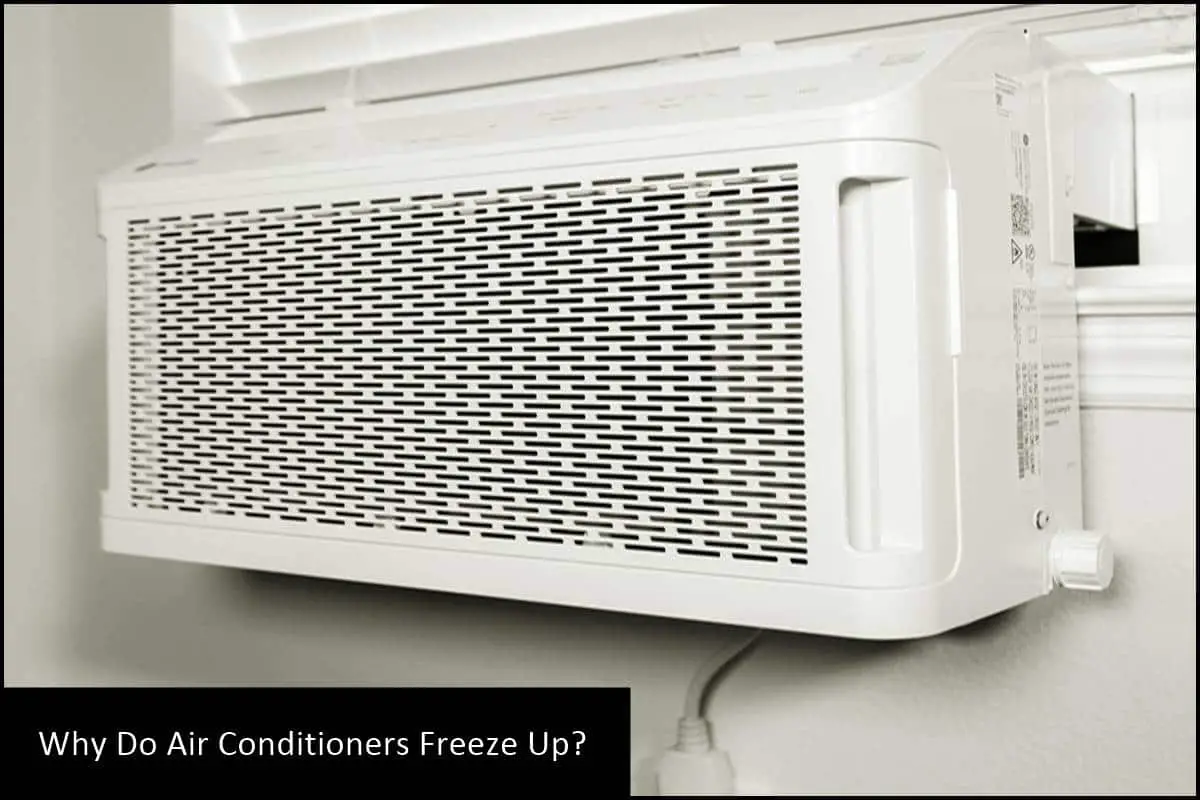Is your air conditioner freezing up and leaving you in a sweat? You’re not alone. Air conditioner freeze-ups are a common problem that can leave you feeling hot and bothered. But fear not! In this article, we’re going to explore common reasons why your AC freeze up and provide you with practical tips on How do I stop my air conditioner from freezing up again.
Lack of Airflow Due to Dirty Air Filters
One of the most common reasons for an air conditioner to freeze up is a lack of proper airflow caused by dirty air filters. Over time, air filters can become clogged with dust, dirt, and other debris, restricting the flow of air through the system. When this happens, the evaporator coil, which is responsible for cooling the air, can become too cold and freeze up.
To prevent this issue, it’s essential to regularly check and clean or replace your air filters. Depending on the type of filter you have, this may need to be done every one to three months. Regular filter maintenance not only helps prevent freeze-ups but also improves the overall efficiency and lifespan of your air conditioner.
Low Refrigerant Levels
Another common culprit behind air conditioner freeze ups is low refrigerant levels. Refrigerant is the substance that absorbs heat from the air and cools it down before circulating it back into your living space. When refrigerant levels are too low, the evaporator coil can become too cold, causing condensation to freeze on its surface.
If you suspect low refrigerant levels, it’s essential to contact a professional HVAC technician to inspect and recharge your system. Attempting to add refrigerant yourself can lead to further damage and may void any warranties on your air conditioner. A qualified technician will be able to identify and repair any leaks in the system, ensuring that your air conditioner operates at peak performance without freezing up.
Issues with the Evaporator Coil
The evaporator coil plays a crucial role in the cooling process of your air conditioner. It is responsible for removing heat from the air, allowing your AC unit to blow cool air into your living space. However, if the evaporator coil is dirty or damaged, it can hinder the heat transfer process and cause the coil to freeze up.
Regular maintenance, such as cleaning the evaporator coil, can help prevent freeze-ups. However, it’s important to note that cleaning the coil requires specialized tools and expertise. It’s best to leave this task to a professional technician who can safely and effectively clean the coil without causing damage.
Faulty Blower Fan
The blower fan in your air conditioner is responsible for circulating the cooled air throughout your home. If the blower fan is not functioning correctly, it can lead to insufficient airflow, causing the evaporator coil to freeze up.
If you suspect a faulty blower fan, it’s crucial to have it inspected and repaired by a professional technician. They will be able to diagnose the issue and determine whether the fan needs to be repaired or replaced. Regular maintenance, such as cleaning the fan blades and ensuring they are properly balanced, can also help prevent freeze-ups caused by a malfunctioning blower fan.
Lack of Air Flow
In addition to dirty air filters and a faulty blower fan, a lack of proper air flow can also contribute to air conditioner freeze-ups. This lack of air flow can result from blocked or closed vents, obstructed return grills, or even furniture placed too close to the air conditioner.
To prevent freeze-ups caused by a lack of air flow, it’s important to ensure that all vents and return grills are clear and unobstructed. Make sure that furniture or other objects are not blocking the airflow from your air conditioner. Regularly check and clean the vents and return grills to remove any dust or debris that may impede air flow.
Insufficient Insulation or Improper Ductwork
Insufficient insulation or improperly installed ductwork can contribute to freeze-ups in your air conditioner. If your home is not adequately insulated, the cool air produced by your air conditioner can escape, causing the evaporator coil to become too cold and freeze.
Proper insulation and well-designed ductwork are essential for maintaining a consistent temperature throughout your home and preventing freeze-ups. If you suspect that your insulation or ductwork is inadequate, it’s best to consult with a professional HVAC technician who can assess your home’s insulation needs and ensure that your ductwork is properly installed and sealed.
Thermostat Problems
Problems with your thermostat can also lead to air conditioner freeze-ups. If your thermostat is not functioning correctly, it may not accurately detect the temperature in your home, causing your air conditioner to run longer than necessary and potentially freeze up.
To prevent thermostat-related freeze-ups, it’s important to regularly check and calibrate your thermostat. Ensure that it is installed in a location away from direct sunlight, drafts, and other heat sources that may affect its accuracy. If you suspect that your thermostat is faulty, it’s best to consult with a professional technician who can diagnose and repair any issues.
Poor Maintenance
Last but not least, poor maintenance can significantly contribute to air conditioner freeze-ups. Neglecting regular maintenance tasks, such as cleaning air filters, checking refrigerant levels, and inspecting the system for any issues, can lead to various problems, including freeze-ups.
To prevent freeze-ups caused by poor maintenance and neglect, it’s crucial to establish a regular maintenance routine for your air conditioner. This routine should include cleaning or replacing air filters, scheduling professional inspections and tune-ups, and addressing any issues promptly. By staying on top of maintenance tasks, you can minimize the risk of freeze-ups and ensure that your air conditioner operates efficiently and effectively.
How to stop air conditioner from freezing up?
Preventing air conditioner freezing requires a combination of regular maintenance and attention to potential issues. Here are some key steps you can take to keep your air conditioner running smoothly and prevent freeze-ups:
- Regularly clean or replace air filters: As mentioned earlier, dirty air filters can restrict airflow and cause freeze-ups. Make sure to clean or replace your air filters every one to three months, depending on the type of filter you have.
- Schedule professional maintenance: Regular professional maintenance is essential for keeping your air conditioner in top shape. A trained technician can inspect your system, clean the evaporator coil, check refrigerant levels, and address any potential issues before they lead to freeze-ups.
- Ensure proper airflow: Keep vents and return grills clear and unobstructed to allow for proper air flow. Avoid placing furniture or other objects in front of or near your air conditioner that may impede airflow.
- Check insulation and ductwork: Ensure that your home is adequately insulated to prevent cool air from escaping. Additionally, make sure that your ductwork is properly installed and sealed to maintain proper airflow and temperature distribution.
- Calibrate and maintain your thermostat: Regularly check your thermostat for accuracy and calibrate it if necessary. Keep your thermostat away from direct sunlight, drafts, and other heat sources that may affect its performance.
- Address issues promptly: If you notice any issues with your air conditioner, such as strange noises, reduced airflow, or unusual odors, don’t ignore them. Addressing problems promptly can prevent them from escalating and potentially causing freeze-ups.
By following these preventive measures, you can significantly reduce the risk of your air conditioner freezing up and ensure that it operates efficiently throughout the summer months.
Conclusion
Air conditioner freeze ups can be frustrating and uncomfortable. However, by understanding the common reasons behind freeze-ups and implementing preventive measures, you can keep your AC running smoothly and prevent future freeze-ups.
Regular maintenance, such as cleaning or replacing air filters, scheduling professional inspections, and addressing issues promptly, is key to preventing freeze-ups. Additionally, ensuring proper airflow, checking insulation and ductwork, and maintaining your thermostat can contribute to a freeze-free air conditioning experience.
Remember, if you’re unsure about any aspect of your air conditioner’s maintenance or if you encounter any issues, it’s best to consult with a professional HVAC technician. They have the expertise and knowledge to diagnose and resolve any problems, keeping your air conditioner in optimal condition.
With the tips and information provided in this guide, you can say goodbye to icy air conditioners and hello to cool, comfortable living spaces all summer long!

Hello, I’m James, the founder of FixitAllSecure.com. With over 10 years of experience in appliance repair, I’ve made it my mission to assist homeowners like you in resolving appliance issues, saving you precious time and money. From practical repair guides to prevention tips, I’m here to ensure your appliances run smoothly and your household stays stress-free.


